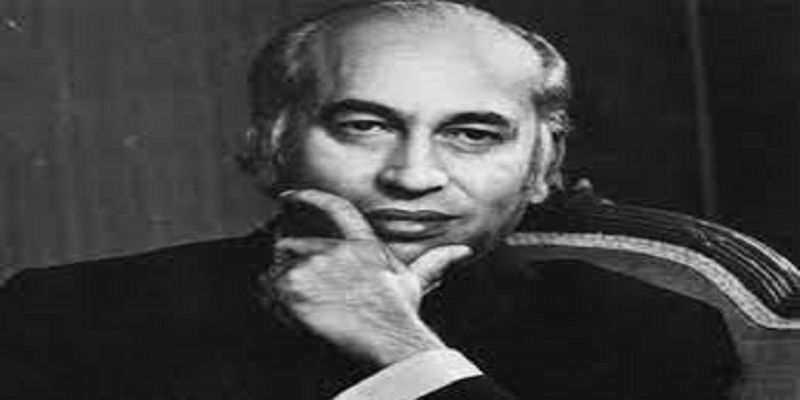Zulfikar Ali Bhutto's Economic Reforms Challenges for a Transformed Pakistan
Zulfikar Ali Bhutto, the former Prime Minister of Pakistan, implemented significant economic reforms during his tenure from 1971 to 1977. These reforms were aimed at addressing socioeconomic disparities, promoting social justice, and achieving economic self-reliance. Bhutto's economic policies, often referred to as the "New Economic Policy," had far-reaching implications for Pakistan's economic landscape. In this essay, we will delve into the key aspects of Bhutto's economic reforms, analyzing their objectives, implementation, and impact.
One of the cornerstone policies of Bhutto's economic agenda was land reform. In March 1972, the government introduced the Land Reforms Regulation, which sought to abolish the feudal system and redistribute land to landless farmers. The maximum limit for landownership was set at 150 acres of irrigated land and 300 acres of non-irrigated land. Excess land was confiscated and distributed among the landless peasants, with the aim of reducing inequality and empowering the rural poor.
The land reforms faced various challenges, including resistance from the landlords and complexities in the implementation process. Despite these challenges, the initiative marked a significant step towards dismantling the feudal power structure and addressing the longstanding issue of land concentration.
In pursuit of economic self-reliance, Bhutto's government embarked on an ambitious program of nationalization. In 1972, major industries, including banking, insurance, and key industrial units, were brought under state control. This move was intended to eliminate private monopolies, reduce the influence of foreign capital, and promote state ownership of key sectors of the economy.
While the nationalization of industries was driven by the goal of economic sovereignty, it faced criticism for its impact on efficiency and productivity. Many argue that state control led to bureaucratic inefficiencies, lack of innovation, and a decline in overall economic performance.
Bhutto's administration also implemented labor reforms to protect the rights and interests of workers. The labor policy introduced measures such as collective bargaining rights, the establishment of labor courts, and the recognition of trade unions. These reforms aimed to address the historical exploitation of labor and promote a more equitable relationship between employers and workers.
Tthe labor reforms were not without challenges. The increased power of trade unions sometimes led to labor strikes and disputes, impacting industrial productivity. Despite the challenges, the reforms represented a significant shift towards recognizing the importance of labor rights in the economic development process.
Agricultural Reforms:
In addition to land reforms, Bhutto's government implemented policies to modernize agriculture and improve the living standards of rural communities. The Green Revolution was a key component of these efforts, involving the introduction of high-yield crop varieties, modern agricultural techniques, and increased use of fertilizers and pesticides.
While the Green Revolution contributed to higher agricultural productivity, it also faced criticism for its focus on large landowners and the neglect of small farmers. The emphasis on cash crops for export led to concerns about food security and the neglect of local subsistence farming.
Foreign Policy and Economic Development:
Bhutto's foreign policy had a significant impact on the economic landscape. The nationalization of industries and pursuit of economic self-reliance were, in part, responses to geopolitical factors. The 1971 war with India and the subsequent loss of East Pakistan had profound economic consequences. Bhutto sought to reduce dependence on foreign aid and align economic policies with nationalistic aspirations.
The alignment with socialist and non-aligned blocs, including closer ties with the Soviet Union and China, influenced economic decision-making. However, this approach also had repercussions, including strained relations with the United States and challenges in accessing international financial support.
Legacy and Criticisms:
The economic reforms initiated by Bhutto had a lasting impact on Pakistan's economic and political landscape. The dismantling of feudal structures, nationalization of industries, and efforts towards social justice were significant steps in the direction of a more egalitarian society.
However, Bhutto's economic policies also faced criticism for their long-term consequences. The nationalization of industries was associated with a decline in efficiency and a lack of competitiveness. The emphasis on state control led to bureaucratic hurdles and a stifling of entrepreneurial spirit.
Moreover, the populist nature of some policies, such as land reforms, faced challenges in implementation and sometimes contributed to social unrest. The economic disruptions caused by these policies, combined with political challenges, ultimately led to Bhutto's removal from power in 1977.
Zulfikar Ali Bhutto's economic reforms were a complex and multifaceted attempt to reshape Pakistan's economic and social fabric. The goals of addressing inequality, promoting self-reliance, and challenging the existing power structures were ambitious and reflected the broader political and geopolitical context of the time.
While Bhutto's economic policies had some successes, they also faced challenges and criticisms. The long-term impact of these reforms, both positive and negative, continues to shape Pakistan's economic trajectory. Bhutto's legacy remains a subject of debate, with differing opinions on the effectiveness and consequences of his economic agenda.

